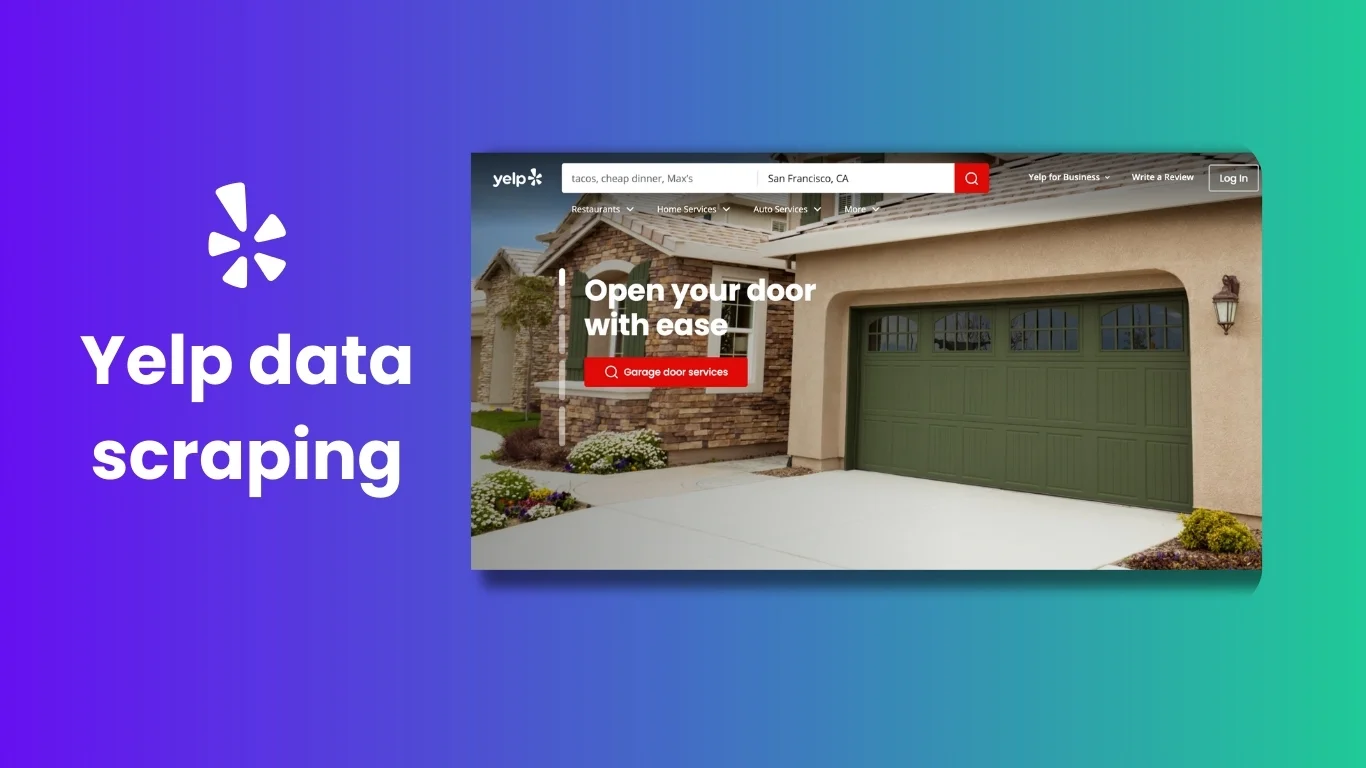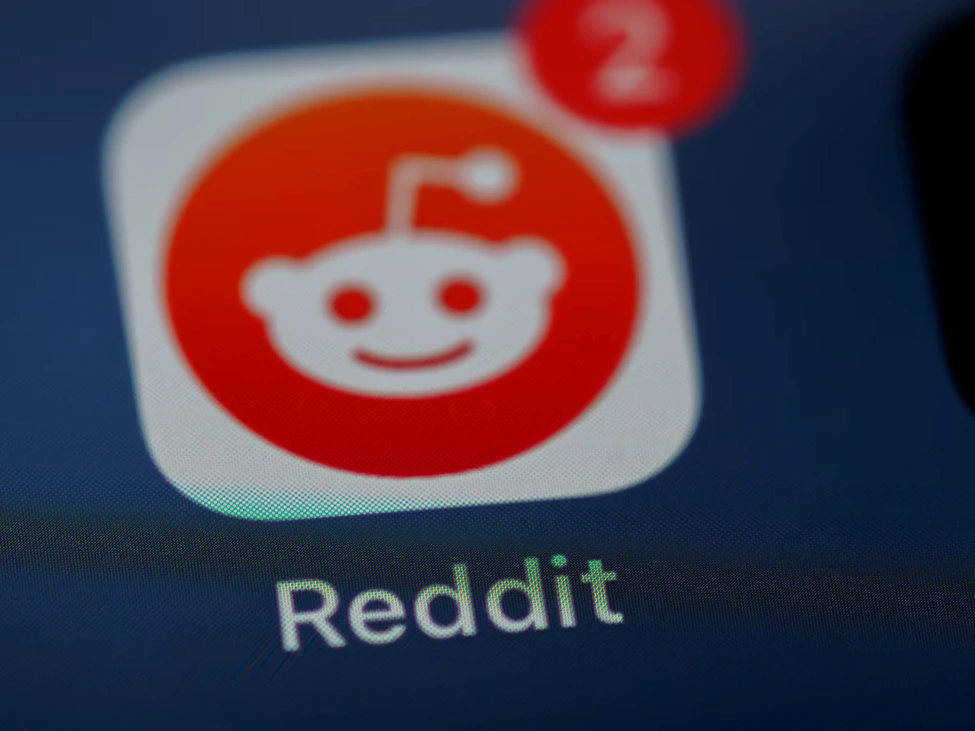When it comes to getting insights for data-driven business decisions, Yelp gets frequently overlooked. But we believe this is a huge omission. With more than 224 million reviews and 5.5 million local businesses claimed on their website, there is a vast ocean of information for you to scrape.
If you are a business owner, a manager keen to leverage data for strategic insights, or just someone who’s curious about Yelp data, our article on Yelp data scraping is poised to be your perfect guide.
What is Yelp web scraping?
At its core, Yelp scraping stands for an automated gathering of publically accessible data from the platform. This includes business details, customer reviews, ratings, and other key metrics.
The journey from collecting data to receiving ready-to-use insights involves a few techniques.
First, you deploy bots or ‘crawlers’ that systematically browse Yelp pages. You’ve got to program those Yelp data extractors to fetch specific information.
Once you obtain the desired information, you’ve got to clean and structure it. This process is known as data wrangling or data munging. Here, you refine the raw, scraped data into a more readable and user-friendly format. In other words, you make it ready for analysis.
The importance of scraping data from Yelp
Yelp started as a crowd-sourced local business review website for restaurants and food businesses. Yet, now it covers more than 23 categories, including beauty, active life, automotive, home services, shopping, and other domains. Hence, it is a great place to monitor customer sentiment, track the rating of your business or your competitors, spot areas for growth, and more.
Consider these facts which explain why you may want to scrape Yelp reviews:
- There are around 130 million monthly unique visitors. This testifies that it is a popular and trusted source of reviews and recommendations. So you should definitely consider extracting data from Yelp as it gathers unbiased feedback from a vast pool of customers.
- It is available in over 32 countries and supports around 14 languages. So, no matter what country you are from, you are most likely to have access to plenty of reviews in the desired destination.
- 93% of customers read reviews before making a purchase or visiting a local business. Hence, you may want to be sure that your product/service is properly presented at Yelp and clearly states your unique selling point.
- 40% of buyers or customers will not deal with your business if it has a poor rating. That is why you’ve got to regularly track your reputation on Yelp and compare it with your rivals. This way, you’ll be able to proactively manage your brand positioning and promptly address any negative impressions once they occur.
- Reputation risk management is one of the key areas for 87% of companies. Executives rate this type of risk more important than other strategic risks.

What Yelp data mining can offer for business?
Yelp opens up a wealth of opportunities for businesses of all sizes across diverse sectors. There are a few ways you may want to use data collected from this website.
Competitive analysis
With access to reviews, ratings, and customer feedback related to your rivals, you can gain a deeper understanding of their strengths, weaknesses, and customer sentiments. This may help you define where you outperform your competitors or spot areas for your improvement based on things their customers don’t like.
Customer understanding
Yelp reviews and ratings are authentic reflections of customer experiences. So, you can better comprehend what customers appreciate and what they’d like improved. Use these insights to steer product enhancements and service improvements.
Localized marketing efforts
Yelp’s location-based data allows you to tailor your marketing strategies effectively. Whether you’re opening a new outlet or targeting advertising, getting to know more about customers, location, and other businesses will help you understand how to approach your audience, what services/products they currently need, and what potential the area may bring you.
Reputation management
As we’ve already mentioned, online reputation often sways purchasing decisions. Only 13% of buyers will consider purchasing goods or services from the company with 1 or 2 stars. This suggests an idea that monitoring Yelp reviews and feedback is a must if you want to be appealing to a broader audience. Yelp data analysis will let you swiftly address negative sentiments and maintain a favorable online presence.
Market Insights
Your flexibility and reaction to market trends can make the difference between staying ahead or falling behind. Let’s consider the Barbiecore fashion trend. If you are a stylist, clothes or accessories shop, or belong to any other industry, missing offering the products that support this trend may cost you hefty revenue losses. So, track anything from emergent consumer preferences to shifts in the competitive landscape to spot trends early and embrace proactive adaptation and innovation.

How to extract data from Yelp?
Collecting information from Yelp involves a series of systematic steps. Here’s a broad overview:
- Identify your data requirements. Information you may want to fetch can be anything from basic business information to detailed customer reviews.
- Scrape the website. Use web scrapers to extract the identified data. Program the bots to navigate Yelp’s web pages and pull the relevant data.
- Store the data. You can keep it in a raw, unstructured format in databases or spreadsheets.
- Clean and structure the data. Process the raw data into a more readable, structured format. It often involves removing duplicates, handling missing data, and validating the accuracy of data.
After these steps, clean, structured data is ready for analysis. You may want to leverage analytical tools to derive meaningful insights from the fetched information.
Even though it feels pretty straightforward, it’s not easy to scrape data from Yelp without a certain level of technical expertise. This is a dynamic website, meaning that information frequently updates, and you need to adjust your scraper to fetch the latest information. Also, Yelp has anti-scraping measures in place to limit the range of data you can get there. Finally, it might not be practical or cost-efficient to set up a dedicated team for Yelp data extraction.
That is why managed data scraping services are a frequent choice for many businesses. At Nannostomus, we bring years of expertise in data scraping and wrangling, ensuring you get accurate, high-quality data while complying with all legal norms.
Conclusion
Whether you run an online or local company, your reputation should always be a key facet of your business. With Yelp data scraping, you can get a better view of what customers think about you, your competition, or indirect rivals. Also, information fetched from this website can give you hints of new opportunities, show the relevance of your business idea, and more.
While data collection is a complex process that requires a lot of resources and expertise, you may want to consider managed scraping services. If you want to get more control over the scraping process, you’re always welcome to check out Nannostomus software.
Whatever your needs are, Nannostomus will tailor our services to your requirements. Get in touch with us to explore the areas of collaboration.




